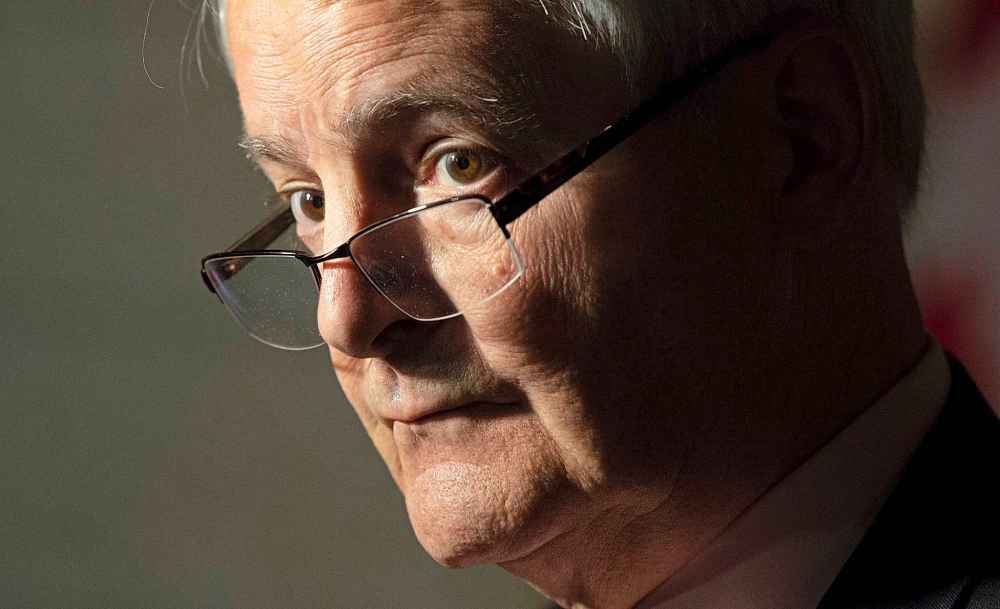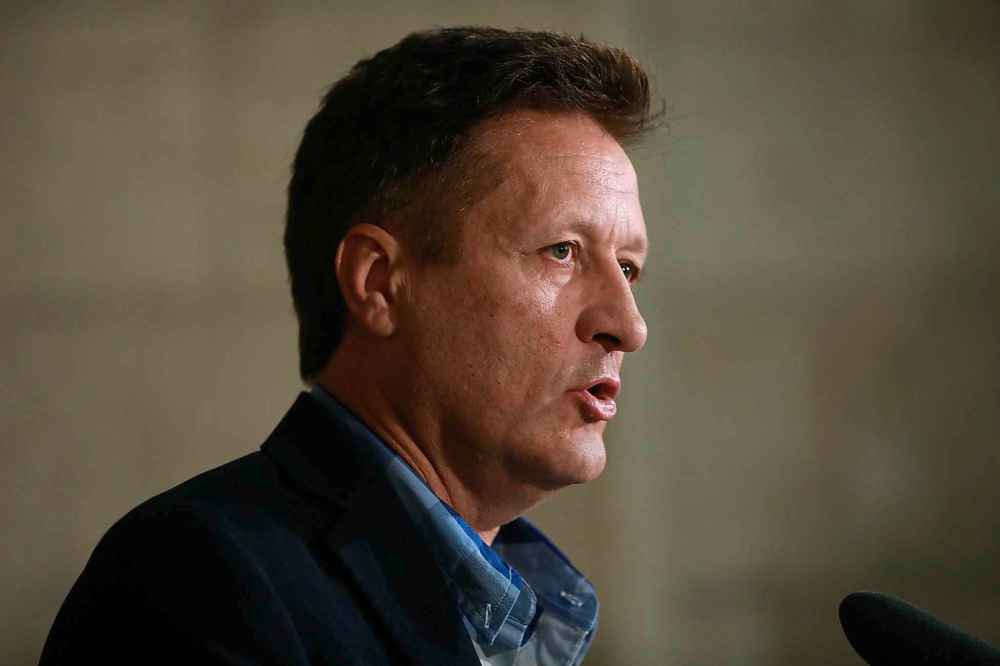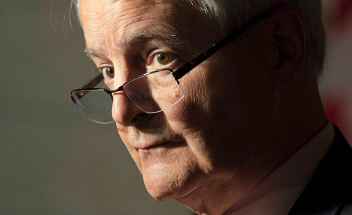Ottawa, province disconnected over Manitoba bus gaps Manitoba turns down help from feds to fund bus routes vacated by Greyhound
Read this article for free:
or
Already have an account? Log in here »
To continue reading, please subscribe:
Monthly Digital Subscription
$0 for the first 4 weeks*
- Enjoy unlimited reading on winnipegfreepress.com
- Read the E-Edition, our digital replica newspaper
- Access News Break, our award-winning app
- Play interactive puzzles
*No charge for 4 weeks then price increases to the regular rate of $19.00 plus GST every four weeks. Offer available to new and qualified returning subscribers only. Cancel any time.
Monthly Digital Subscription
$4.75/week*
- Enjoy unlimited reading on winnipegfreepress.com
- Read the E-Edition, our digital replica newspaper
- Access News Break, our award-winning app
- Play interactive puzzles
*Billed as $19 plus GST every four weeks. Cancel any time.
To continue reading, please subscribe:
Add Free Press access to your Brandon Sun subscription for only an additional
$1 for the first 4 weeks*
*Your next subscription payment will increase by $1.00 and you will be charged $16.99 plus GST for four weeks. After four weeks, your payment will increase to $23.99 plus GST every four weeks.
Read unlimited articles for free today:
or
Already have an account? Log in here »
Hey there, time traveller!
This article was published 05/02/2019 (2504 days ago), so information in it may no longer be current.
OTTAWA — The federal government is chiding Manitoba for thwarting its attempt to help fund two bus routes abandoned by Greyhound, the Free Press has learned.
“We got a very clear indication from the government of Manitoba that they were not interested,” Transport Minister Marc Garneau said in an exclusive Tuesday afternoon interview.

The minister shared a Jan. 28 letter in which he urged Manitoba counterpart Ron Schuler to consider a cost-share fund Ottawa proposed three months prior, to temporarily help companies run bus routes abandoned by Greyhound Canada that aren’t profitable without a subsidy.
Last July, Greyhound announced it was ending all its Canadian routes between the Pacific Ocean and Sudbury, Ont. (A Vancouver-Seattle shuttle is Greyhound’s only remaining service in Western Canada.)
Ottawa proposed its cost-share subsidy Oct. 31, 2018 — the last day of Greyhound service west of Ontario — and put up $10 million for provinces to access, strictly on a cost-matching basis and only for two years.
Garneau said Tuesday he made that pitch a second time last month, as Winnipeg-Brandon and Winnipeg-Minnedosa remain unfilled. He said Schuler rebuffed the offer for funding, and even declined a request for a phone call.
Schuler responded he was ill and wanted to give a prompt answer. “We don’t want to get into subsidizing private industry, by and large,” he said in an interview.
In any case, Garneau characterized the move as leaving “money on the table.” He had no rough figure for how much the province could get, saying “it would be a relatively modest outlay” depending on Manitoba’s request.
“I’m disappointed, because I think there are people in Manitoba who don’t have other options, that depend on bus travel, either because of cost or because they have no other option,” said Garneau.
He said “provinces” have applied for cash, but wouldn’t say how many nor the amount they’ve requested.
Garneau’s letter notes the Manitoba gaps came up at a Jan. 21 meeting with provincial transport ministers (Manitoba sent a bureaucrat, as Schuler had been abroad).
Federal letter to Manitoba on post-Greyhound service gaps
“Now, more than ever, we need to fix this problem together. Restoring this service is more important than partisan politics,” the letter reads.
Schuler said Ottawa should consider funding sections of routes that connect provinces “to get it up and running” because interprovincial services are generally federal. He did not clarify what distance from the province’s border with Saskatchewan should be under Ottawa’s purview.
By the time Greyhound service ended Oct. 31, private companies had come forward to fill 87 per cent of the firm’s routes across Canada, mostly using large vans, instead of coaches. Provincial officials said all Manitoba routes had been filled — though residents of Minnedosa told the Free Press on Tuesday there has been no replacement along Highway 16.
Meanwhile, two firms have since cancelled their routes to Brandon along the Trans-Canada Highway.
On Jan. 18, Brandon Bus Lines ceased its thrice-weekly Brandon-Winnipeg run, after just two months of service. Its owners said its large vans were seldom full.
Saskatchewan firm Rider Express also cancelled its Regina route to Winnipeg after a month of service due to low ridership. The company said Tuesday it is considering restoring the route this summer.
Schuler was apparently unaware of these gaps Tuesday.
“Within the province of Manitoba, all the routes are covered,” he said, incorrectly. “There’s really no reason for us to start subsidizing what private industry is doing already.”

Passengers have also noted the companies replacing Greyhound’s routes don’t offer an identical service. For example, some routes depart from locations that aren’t accessible by public transit, or in the wee hours of the morning.
Last month, customers taking a Thompson Bus route to Winnipeg complained about being put onto a coach halfway which had with no heating, during temperatures approaching -40 C.
The City of Thompson itself lost all public transit for three months, because its bus drivers were contracted by Greyhound and a municipal election interrupted plans to sign a new contract. The city council endorsed a deal this week to have Maple Bus Lines fill the contract that ended Oct. 31, 2018.
“In the end, private industry stood up to the plate, and we think they’re doing a really good job,” Schuler said, speaking generally.
dylan.robertson@freepress.mb.ca











